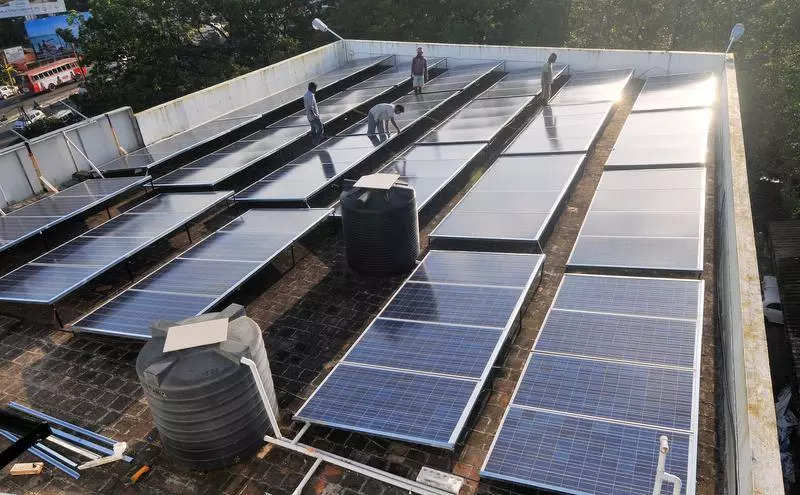[ad_1]
 representative image
representative image Ghaziabad, Ghaziabad Development Authority ,GDA) is set to amend its building bylaws solar panels Mandatory for all plotted residential properties. Under the proposed rules, all plots of 100 square meters and above will have to generate at least 1 kilowatt of solar energy.
Earlier this month, the Lucknow Development Authority (LDA) revised its solar panel installation guidelines to make it mandatory to install solar panels on all residential properties with a plot size of 1,00 square meters or more. rooftop solar panels Under PM Surya Ghar Yojana.
“Once implemented, the approval of building maps will be subject to the provision of solar panels. No completion certificate will be issued if the provision is not made,” said a GDA official. The authority has now asked the town planner to prepare a draft which is to be presented before the board in the next meeting.
The move is in line with the state government’s plan to make Ghaziabad a ‘solar city’ and meet more than 10% of the city’s total power requirements from solar energy by 2027, officials said.
The Uttar Pradesh New and Renewable Energy Development Agency (UPNEDA), which is developing Ghaziabad as one of the 18 solar cities in the state, recently released segment-wise details – residential, commercial, government, industrial and educational institutions. Solar photovoltaic (PV) work has been started on the rooftop. ) potential of the city and found that it has the potential to generate about 2,858 MW of solar energy.
Earlier, UPNEDA director Anupam Shukla had told TOI that an estimated 2,014 MW of power could be generated from solar panels installed on the rooftops of residential houses alone. The study also revealed that 616 MW of solar energy could be generated from panels installed at industrial sites, 107 MW from commercial buildings, 73 MW from educational establishments, 35 MW from government offices and 14 MW from health care institutions.
Compared to conventional sources, solar energy is at least 30% cheaper as both state and central governments provide subsidies and information for installation of solar panels. Rs 14,588 per kilowatt is offered as central subsidy for installation of solar rooftop panels in residential areas. Above 3KW consumption, the subsidy will be halved to Rs 7294/KW. On the other hand, the state government provides a subsidy of Rs 15,000 per kilowatt, with a maximum of Rs 30,000 per kilowatt.
For a three or four bedroom flat, the estimated cost of installing solar panels comes to around Rs 2 lakh. There is also the concept of net metering, under which excess or unused solar power will be sent to the main grid of the power department, and the amount will be subsidized during billing.
[ad_2]
Source link






